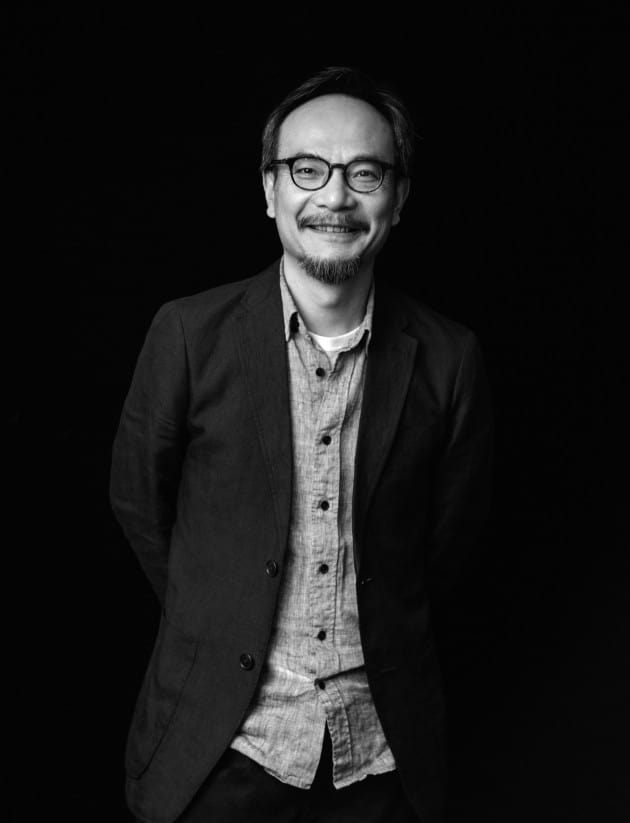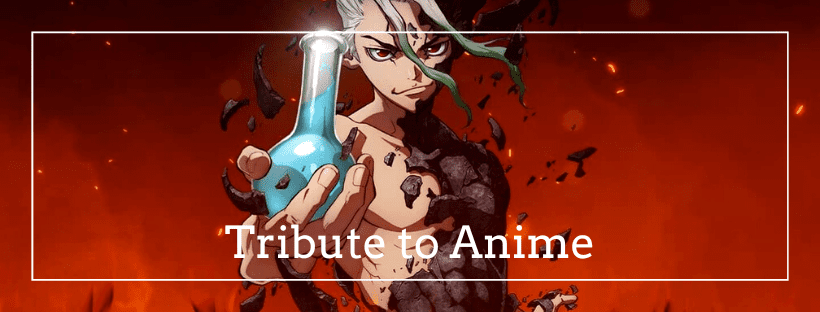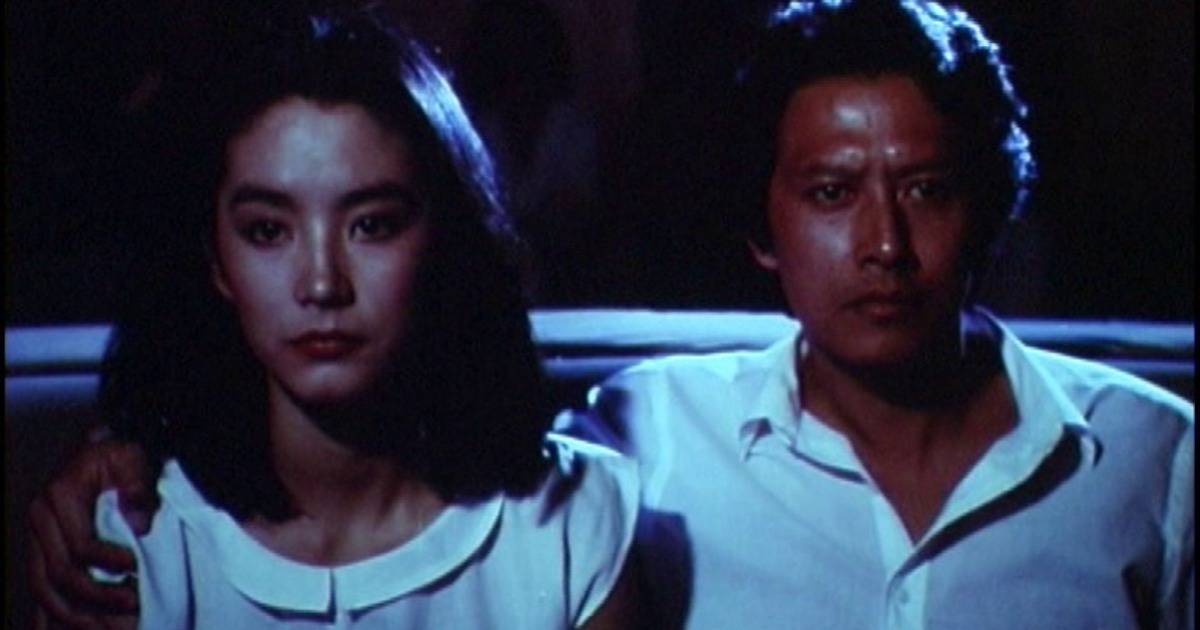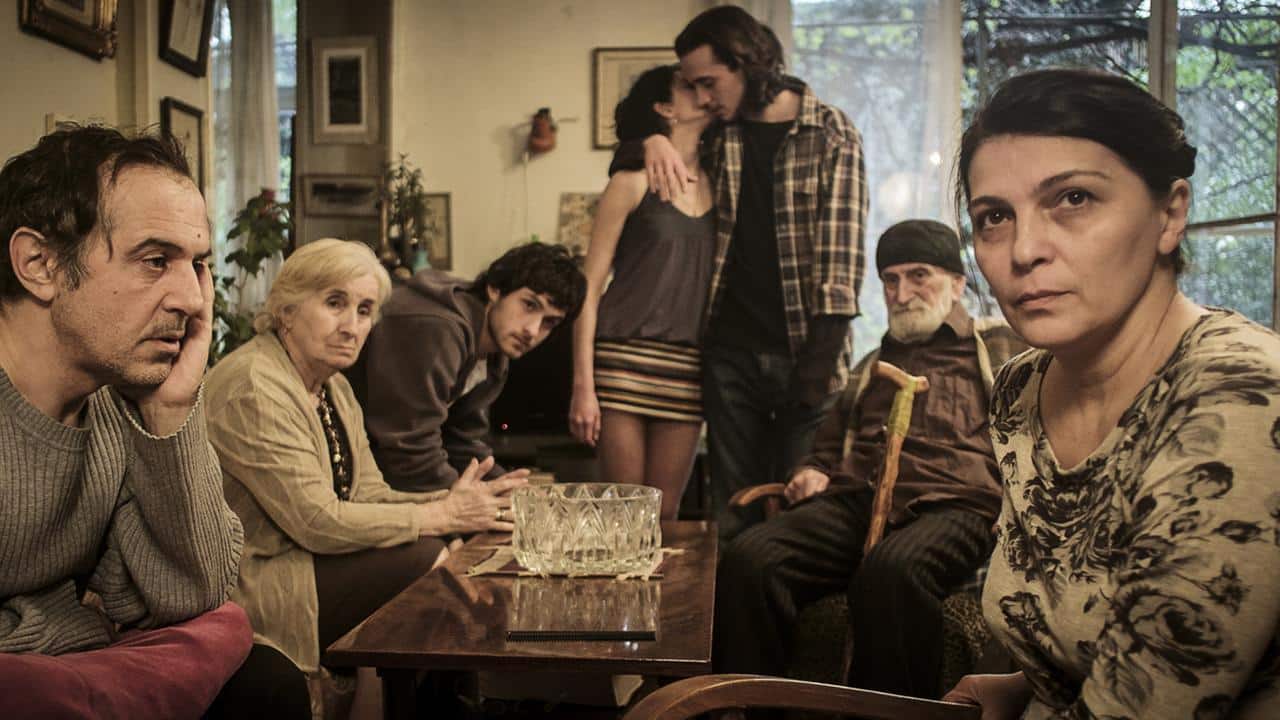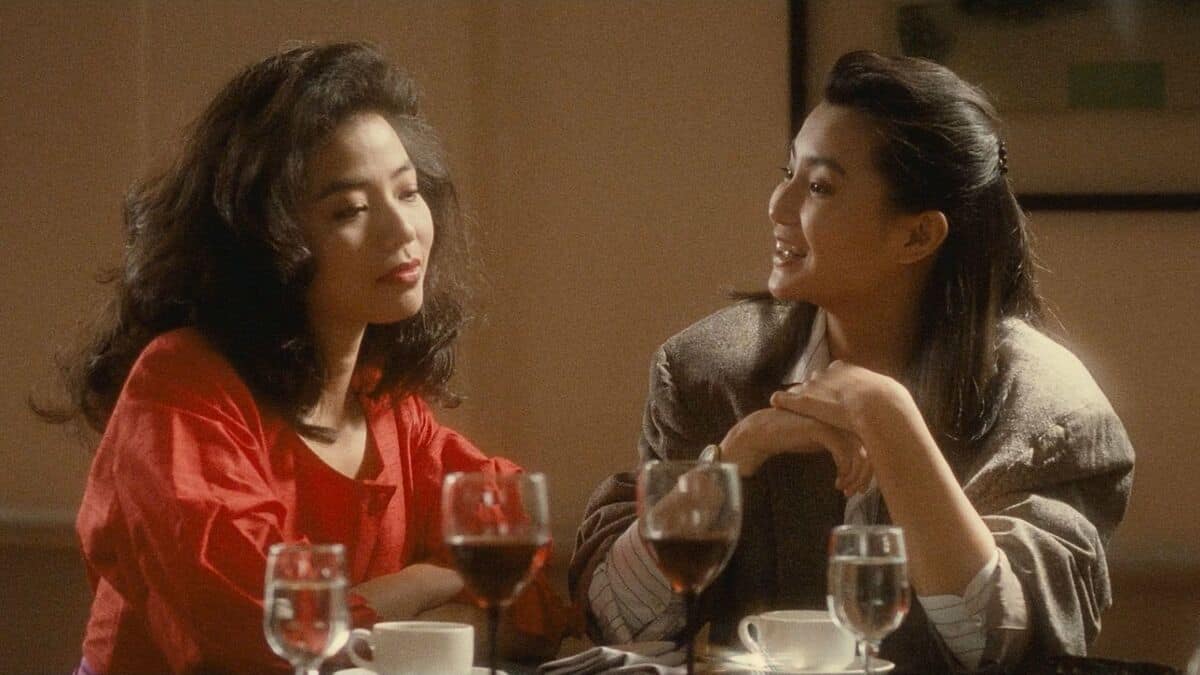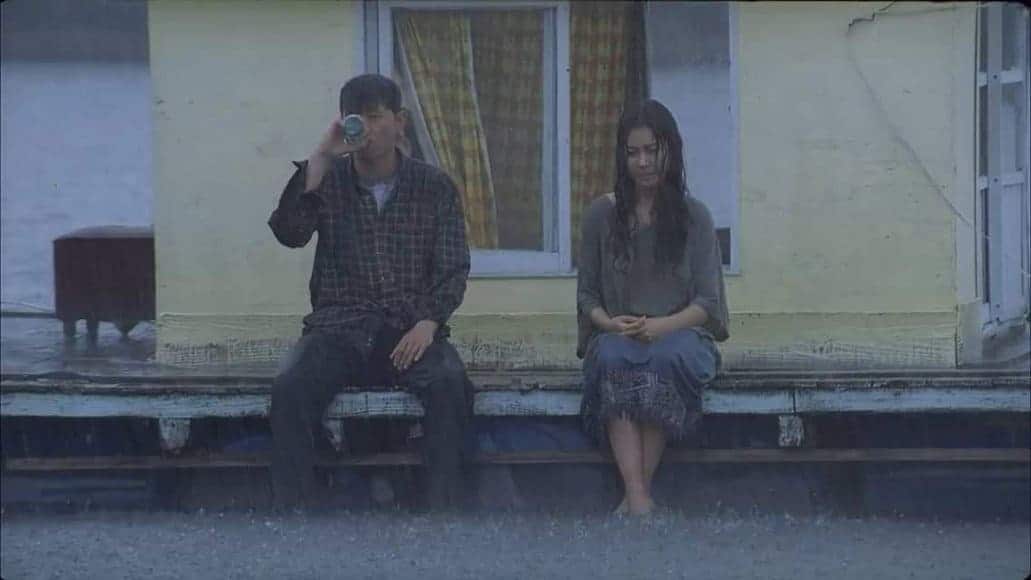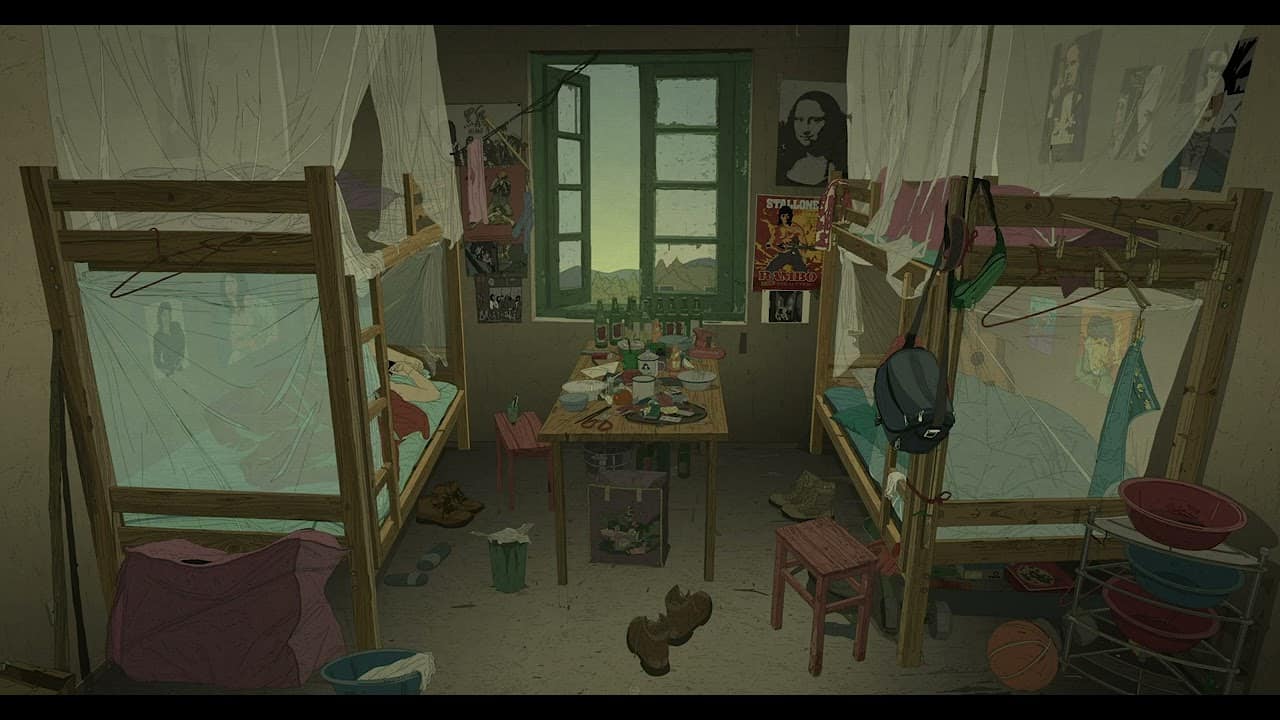With his animated drama “Art College 1994” about a group of students who contemplate about contemporary art, literature and philosophy in search of their own path, Liu Jian returns to the official competition of the Berlinale, six years after he walked down the red carpet to the Berlinale Palast for his multiple-awarded crime tale “Have a Nice Day”. In this story set up against the backdrop of reforms opening China to the rest of the world, there isn't much of a plot, since Jian simply gazes back in his own college days, rummaging in the past. Different from anything he has done so far, apart from the animation style which is uncompromisingly his, are the loose plot and a multitude of characters that share almost the same attention.
Asian Movie Pulse was given an exclusive interview by Liu Jian straight after the world premiere of the film in Berlinale Palast. Still dressed in the tuxedo, and visibly excited about the full house, the Chinese artist/ filmmaker spoke about the wind-changing times in the 1990s, his love of the 2D animation and how it came to be that some of the most prominent figures of the Chinese cultural life lent their voices to film's characters.
“Art College 1994″ is screening at Berlinale
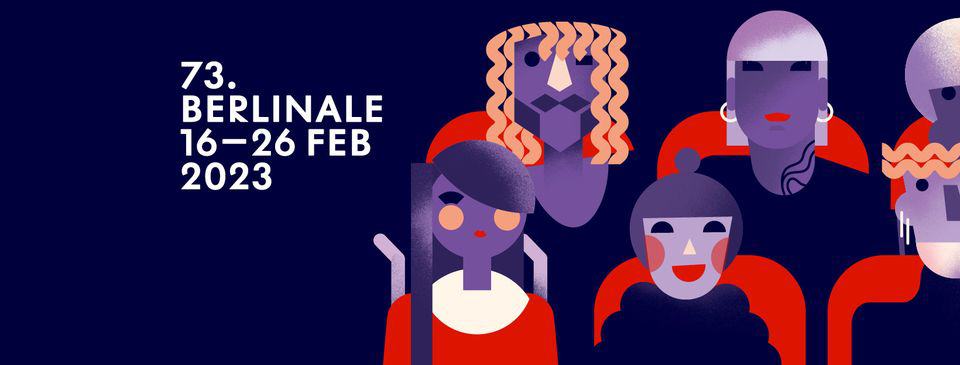
Can you tell us something about your decision to move from the classical art milieu, and start making animations?
I studied traditional Chinese painting back in the days, and after my graduation I tried out a lot of forms of artistic expression. I was into photography, contemporary art, I played in a band and I even wrote a couple of novels. There wasn't anything I haven't tried to see what really suited me. I was slowly exploring options to express myself in the best possible way. Looking back, all of it was just a preparation for filmmaking, where I finally found myself. That also doesn't mean that I gave up on other things. I am still making myself busy with other things.
What is particularly exciting in your movie is the referencing. You quote writers and poets, you let your characters discuss about philosophy and new art movements. The film even kicks off with a quote from “A Portrait of the Artist as a Young Man” by James Joyce. Can you elaborate a bit about the connection between the animation and your concrete inspirations in the world of art and literature?
In the 1990s, when I was a student, it was quite normal and popular to discuss philosophy and literature on campus. The times were changing, everything was new and exciting. We spoke about the old and the new, compared, accepted or rejected. We dared to go to new places. With this animation, I am trying to re-create that period, and let my characters discuss anything that they find exciting and relevant in their spare time. I remember very well that we were immersed in all things culture-related, and the 1990s generally brought a fresh breeze into our lives. Young people in “Art College 1994” are, above anything else, full of life and curiosity.
Would you say that you put a bit of your own story into one of your lead male characters?
Yes, but it was a mixed bag of my personal experiences put together with many others from my friends and fellow students. In that sense, it's not accurately autobiographical, but more like a portrait of collective memories. There is a bit of me in every of those young men in the film. Also, I wanted to speak about the universal truth that many young people, once they graduate, have to make difficult choices, and to face the clash between their dreams and reality. So, it's actually the two girls who represent the youth.
Your film is impossible to compare to any other in regard to its topic, and the way you approach it. Were you scared that it would potentionally not find its audience?
Oh yes, I was aware of the risk, but this was the film that I absolutely wanted to make. Each time I make a film, it's with the aim to put animation in the cinema, because animation belongs to filmmaking as much as drama, action, mysteries and so on. Animation has different aesthetics from the ‘real people' movies. In a way, it's beyond them. Regarding the technique, which is 2D, it was the logical extension of my background as a painter. That means that I basically like to ‘paint' a film, which is the reason I always turn to traditional drawing, instead of 3D animation. The classical animation approach has its unmistakeably vintage aesthetics, which I prefer.
There are lots of prominent Chinese artists and intellectuals voicing your movie protagonists.
That's quite true. We have people from all possible corners of China's cultural landscape: writers, university professors, filmmakers, artists, actors and even moderators. I thought that, because this film is about art, I should turn it into a proper artistic stage with people who felt comfortable in that world. So, we tried to find people with suitable mentality, and even with suitable life experience to give their voices to the characters.
How was their reaction when you approached them?
We have the right person to answer that question. Please, meet my producer Yang Cheng.
YC: They were all quite happy to join in, because they knew the previous works by Mr. Liu Jian. Although many of them are huge stars, they don't get this kind of opportunity to participate in such projects. It didn't really take me that much time to convince them. They were excited about the film. We were also looking for particular dialects, and that also turned out to be easier than thought. Our luck was that all of these artists and professionals appreciate good art. So, we got on board the likes of Dong Zijian (Mountains May Depart), Zhou Dongyu (Better Days), musician RenKe, comedian Papi, Huang Bo (Journey to The West), actor and director Da Peng (City of Rock), as well as Jia Zhangke and Bi Gan.
Every single scene in your movie is rich in details. Do you search for the right places to find inspiration and then ‘paint them on the canvas', is the final result the product of your imagination or is it the combination of the two?
It is both. I have done a lot of research, and we went location scouting. During that long search period, I was taking pictures and selecting the places by looking for specific things which bore a meaning for me in the 1990s. I was, after all, trying to re-create an environment based on my memories.
Concerning your working process, do you work on your films with the same people, and how long is usually your preparation process?
I've spent five years working on this film, and around 10 people from my previous project were on board. We've generally known each other for a very long time. It's a matter of mutual trust and the practical use of professional knowledge. “Art College 1994” is my second film that screens at the Berlinale, and this year it's fantastic that two animations are in the official competition. Besides “Art College 1994”, you've got Makoto Shinkai's “Suzume”, and I am happy to see that an animation can finally compete along films with actors. As I said before, animations are also films, they belong to the cinema. They should be given the same place as other type of movies, and their artistic value should be recognized.


